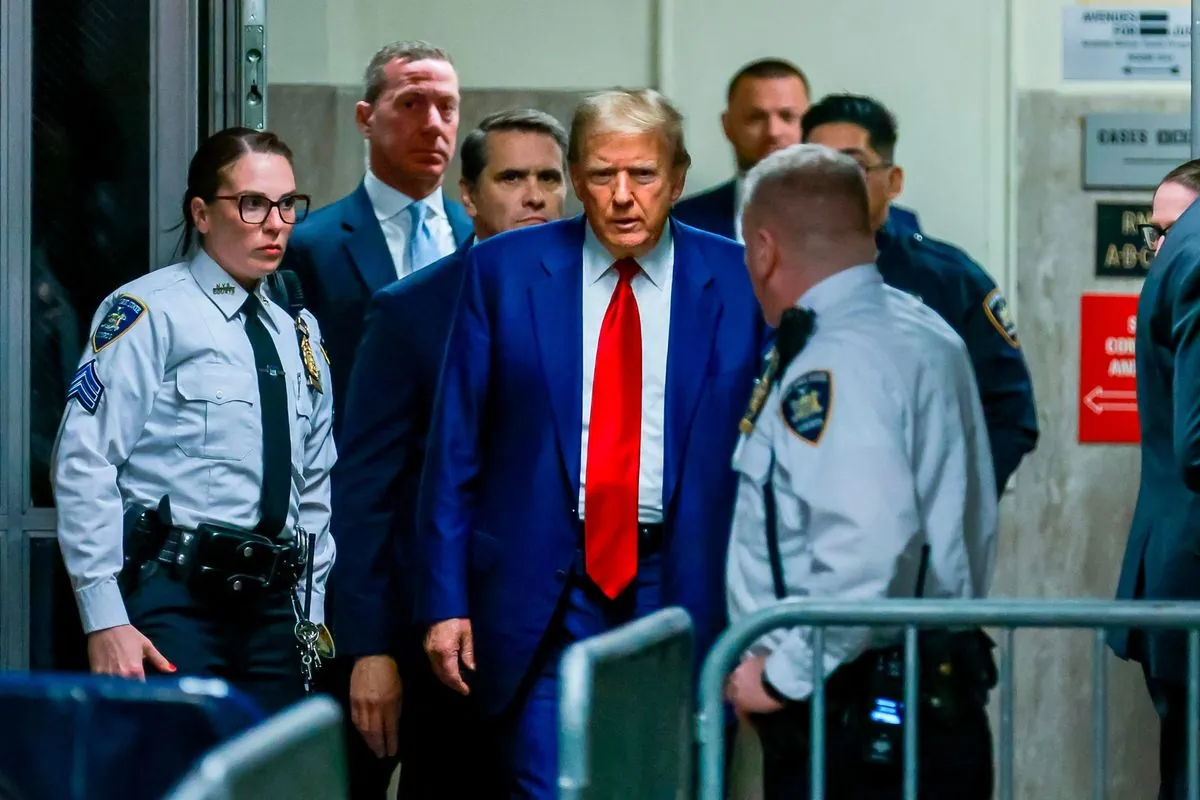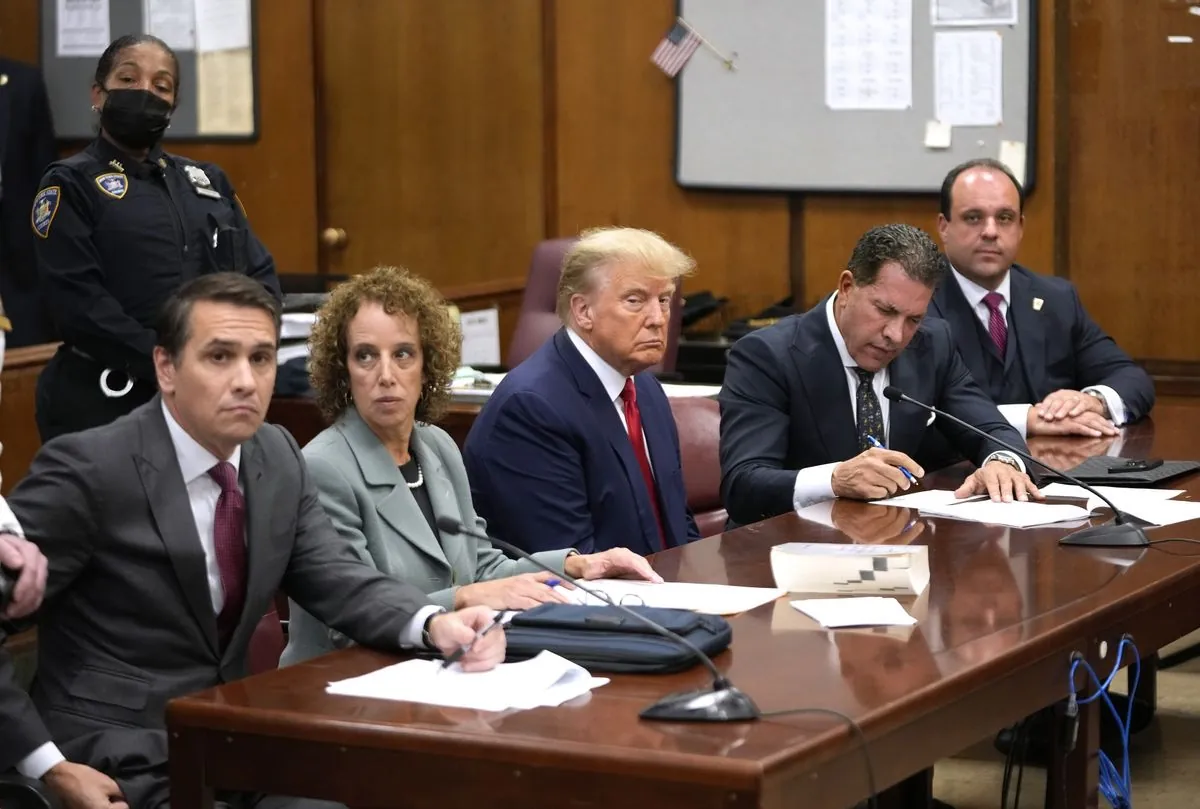Trump Seeks Sentencing Delay in Hush Money Case Until After Election
Former President Donald Trump's legal team requests postponement of sentencing in hush money case, citing potential election interference and need for time to address immunity ruling.

Donald Trump's legal team has submitted a request to postpone the sentencing in his New York hush money case until after the November 2024 presidential election. This move comes as the former president, who served as the 45th President of the United States from 2017 to 2021, faces potential legal consequences that could impact his current campaign.
The request, made public on August 15, 2024, outlines several reasons for the proposed delay:
- Concerns about election interference
- Need for time to respond to an upcoming immunity ruling
- Alleged conflict of interest involving the presiding judge
Trump's attorneys, Todd Blanche and Emil Bove, argue that proceeding with the sentencing as scheduled on September 18, 2024 - approximately seven weeks before Election Day - could be perceived as interfering with the electoral process. The U.S. presidential election, which occurs every four years, is set for November 5, 2024, with many states offering early voting options.

The legal team also cites the need for additional time to consider their next steps following an anticipated ruling on presidential immunity by Judge Juan M. Merchan, expected on September 16, 2024. Presidential immunity is a complex legal doctrine that protects presidents from certain legal actions, and its interpretation could significantly impact the case.
"There is no basis for continuing to rush"
This case marks a historic moment in American politics, as it represents the first criminal trial of a former U.S. president. Trump was convicted in May 2024 of falsifying business records in connection with hush money payments made to adult film actress Stormy Daniels in 2016. The payments were allegedly made to prevent Daniels from disclosing an alleged sexual encounter from 2006.
Prosecutors from the Manhattan District Attorney's office, an elected position, argued that these payments were part of an effort to influence the 2016 presidential election by suppressing potentially damaging information. However, Trump maintains his innocence, claiming the case is politically motivated.
The potential sentences for falsifying business records range from probation to up to four years of imprisonment. Trump has pledged to appeal the conviction, but this process cannot begin until after sentencing.
The case has raised complex legal questions, including the application of presidential immunity to actions taken before and during a president's term. The U.S. Supreme Court, which has the power to interpret the Constitution and federal laws, recently issued a ruling on presidential immunity that may impact this case.
As the legal proceedings continue, the implications for the upcoming presidential election remain uncertain. The U.S. uses the Electoral College system to elect its president, not a direct popular vote, adding another layer of complexity to the potential impact of this case on the election outcome.
The Manhattan District Attorney's office has not yet commented on the request for a sentencing delay. As this unprecedented situation unfolds, it continues to highlight the intricate relationship between the legal system and the political process in the United States.


































